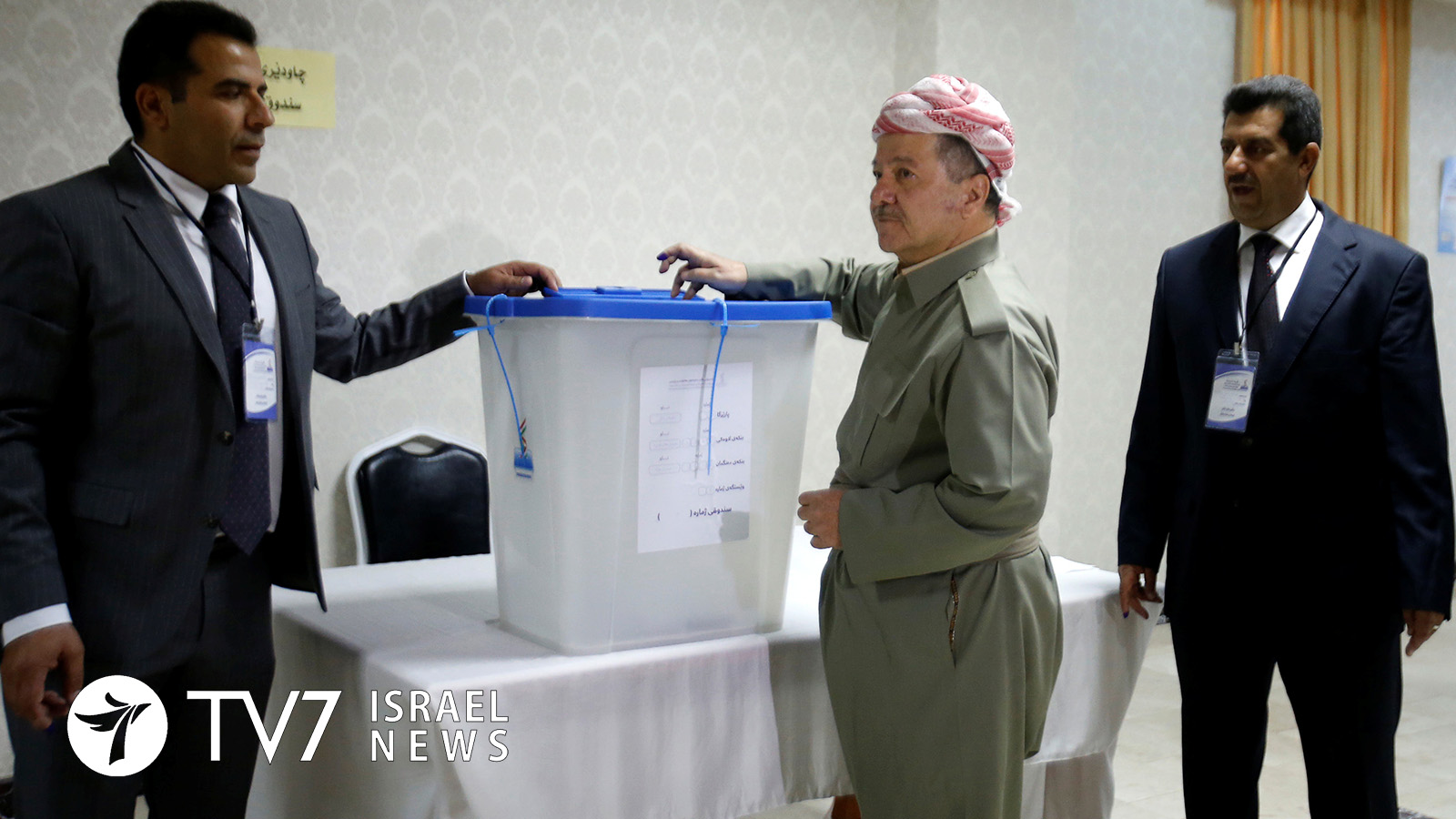Voting started this morning in an independence referendum, which was organized by the Kurdish regional government of northern Iraq. Millions of Iraq’s northern population flooded to the polling stations during the day, with most of them voicing both excitement and joy for the historic independence bid that has been an active aspiration of the Kurdish people for many decades. Ali Abdullah, who voted at a polling station in Irbil, declared “We voted ‘yes’. God willing, we will become independent. This is not a separation, it is independence. We are living in our own county, thank you,” the Kurdish man said as tears of joy ran down his cheek. Shara Sherawan who also voted for Kurdish independence said, “Today is a beautiful day, we have come here to vote for an independent Kurdistan. Today is a celebration and, God willing, we will be victorious and be free from everything,” she said. It is important to note that even though the vote is expected to deliver a comfortable “yes” for Kurdish independence, the move is not binding and is meant to give President Barzani’s KRG a mandate to negotiate secession of Iraq’s northern region, which holds more than a quarter of the country’s oil production, with Iraq’s central government in Baghdad and the neighboring states. President Massoud Barzani, who was among the first to vote this morning, rejected international claims that the Kurdish bid for independence would stoke instability and violence across the Middle East, emphasizing that the KRG is willing to establish negotiations with the central government in Baghdad on the matter of independence and provide it with as much time as needed to bring about the desired result in a peaceful manner. KRG President Massoud Barzani stressed, “I would like to reiterate that this referendum is not to draw the border to Kurdistan, this referendum is not to impose any status quo in any area. After the referendum, we are ready to start the process of dialogue with Baghdad. We are ready to give it as much time as needed, one year, two years, and if we see that we have constructive dialogue with Baghdad, we can give it more time as well. But I would like to underline that we are never ever going back to Baghdad to renegotiate the failed partnership that we had in the past,” the Kurdish leader said.
The Kurdish bid for independence, however, has angered Iraq’s central government, with Prime Minister Haider al-Abadi warning of a series dangerous consequences, if the Kurdish regional leadership would decide to ignore Baghdad and to declare independence in a unilateral manner. He said, “We will not relinquish our Kurdish people. We have rejected a sectarian and racist state. Iraq will remain for all Iraqis and we do not allow anyone to do what he likes without bearing consequences,” the Iraqi Prime Minister declared in a special press conference ahead of the referendum. Baghdad is not alone in their strong objection of Kurdish independence, with both of its powerful neighbors, the Islamic Republic of Iran and Turkey, voicing warnings of their own toward the Kurdish leadership and vowing to assist the central government in assuring the unity of Iraq. Turkish Prime Minister Binali Yildirim declared ahead of the Kurdish referendum that Ankara will never tolerate any status change or any new formations on its southern borders while declaring Kurdish independence as null and void in the eyes of the Turkish government. He said, “Turkey can never tolerate any new formations or any change of status on its southeast borders. The referendum that will be held in Northern Iraq tomorrow is illegal. It’s null and void,” the Turkish Prime Minister declared in a rally of his AKP faction.
Turkey has warned on several occasions that steps in response to the referendum will have security, diplomatic, political and economic dimensions. Ankara’s warnings are not empty threats, as its military commander has already held several high-level work meetings with his Iraqi counterpart, with regard to recent developments in northern Iraq, and the Turkish military has launched a massive military exercise while simultaneously mobilized thousands of troops on its border with Iraq’s Kurdish regions.
While most countries in the region maintaining a low profile with regard to voicing an official opinion on the Kurdish referendum, dozens of Israeli Jews of Kurdish origin gathered outside the United Sates Consulate-General in Jerusalem, where they held traditional dances and voiced support for the Kurdish bid for statehood in northern Iraq. Margalit Shmuel, an Israeli of Kurdish origin declared, “We love Kurdistan, we support very much with Kurdistan. We think the Kurdish people is suffering enough and we want independence for Kurdistan, we support with them. We are here for them, and we are making festival for them,” she said, while another Israeli of Kurdish origin, Meital Doga, proclaimed, “I’m here to say ‘yes’ for independent state and (in Kurdish followed by English:) ‘Long live the state Israel, long live the state of Kurdistan.” Sources close to Kurdish President Massoud Barzani said that they were pleased by the strong relations between Israel and the Kurdistan Regional Government, while declaring that establishing a Kurdish state would help cement those strong ties.
